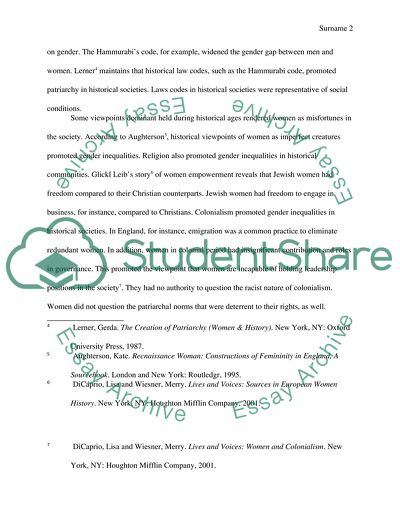Gender Inequlaities Response Paper Essay Example | Topics and Well Written Essays - 500 words. Retrieved from https://studentshare.org/history/1633654-gender-inequlaities-response-paper
Gender Inequlaities Response Paper Essay Example | Topics and Well Written Essays - 500 Words. https://studentshare.org/history/1633654-gender-inequlaities-response-paper.


